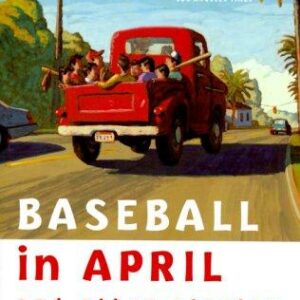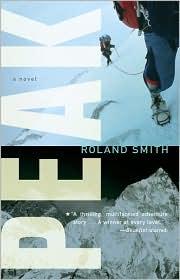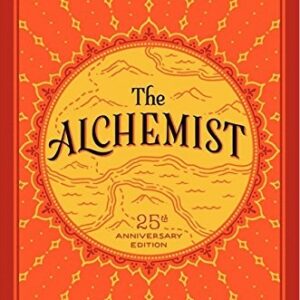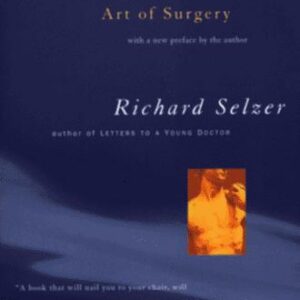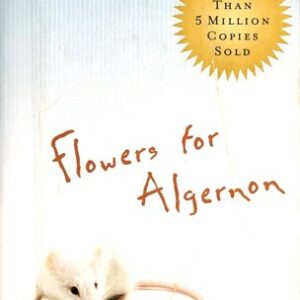Description
Poems that break down, expose, and reconsider our notions of time.
This collection speaks the language of the clock as a living instrument, exposing the sensory impacts of our obsession with time. In oh orchid o’clock, lyrics wind through histories like a nervous system through a body. The poems speak to how we let our days become over-clocked, over-transactional, and over-weaponed. With an instrumental sensibility, Endi Bogue Hartigan investigates what it is to be close to time—collective time, with its alarms and brutalities, and bodily time, intricate and familial. She considers how can we be both captured and complicit within systems of measurement, and she invites us to imagine how to break from, create, or become immune to them. Her poems use language to expose the face of the clock to reveal how gears press against interconnecting systems—economic, capitalist, astronomical, medical, governmental, and fantastical.
Endi Bogue Hartigan is the author of several books, including the poetry and photography chapbook seaweed sd treble clef;Pool [5 choruses], which was selected by Cole Swensen for the Omnidawn Open poetry book prize; and One Sun Storm, which was selected by Martha Ronk for the Colorado Prize for Poetry. Her poetry has appeared in West Branch, Interim, New American Writing, VOLT, Chicago Review, Bennington Review, and Denver Quarterly, among others. She lives in Portland, Oregon.
“Hartigan’s oh orchid o’clock fluidly rotates constructions of time: our violent times; scientific and philosophical time; the ‘orbit’ of digital time we frequently ‘visit’; the transportive materiality of deep time; the ruling ‘grip of time’ within the timepiece; the illusory ‘streaming of time’ that is ‘a perception trick’; and, critically, time ‘resolved’ or defeated by nature by ‘the orchid opal sky calculating nothing;’ by the imprecision of water, which is ‘the nemesis of all clocks;’ by fire, where the ‘clock surrounds . . . a foliage of flame, clockless.’ Here, in the book’s free rotation of poetic time, which is ‘something pure and round,’ we are not ‘absorbed’ by the ‘vertical worlds’ that ‘fall horizontally.’ Here, in the linguistic rotations constructed by poetry, we are not mere visitors of time or ‘tethered as a clockhand.’ Here, in oh orchid o’clock, we are new rotations, where ‘one side of the orchid is pointing at everything close.’”
“Time is in the center of this extraordinary poetry collection by Hartigan, who drives us (through a kind of incantatory speech) into a world of subversive syntax, of compressed and expanded language and, most of all, of meaning. This ‘apparatus,’ as the poet subtly refers to the compositions on these pages, rearranges the outlines of matter versus organic matter, of the objective versus the subjective in our known (and unknown) spaces, giving them a new range of expression, a new clarity, to signify and bridge. These poems connect the molecular to the universal to the public to the personal in a single breath. It’s a wildly original and ingenious book, but what catapults us into the bliss of this reading is a sense of finding (astonished) the 'arrows and notches' of our earthly human print.”
“Hartigan, in this wondrous and fearsome mélange of meditation, rhyme, and wordwelding, pursues the vortex of Emily Dickinson’s dark conjuncture even as she mounts a Blakean charge against the modern tyranny of clock-time. Her oh orchid o’clock is rife with natural and mechanical marvels—scent clocks and snowflakes, marigolds and gym ellipticals—but its terribly ubiquitous mechanisms are the Taylorized workplace and the AK-15. Counter to these rapacious devices, Hartigan weaves a lush tangle of perceptions, drawn from the everyday, heightened by her deliriously acute ear. Not a knife-beak, not an ink fluke: public events toll ever more ominously in her Northwestern US, and yet these poems, lounging in the clock like certain creatures, lyrically undo the incremental fiction of the hours.”
“Swirling with condensations and collisions of language, observations, societal and personal conditions, at the center of which abides a constantly fervently spinning heart, these poems also ask: ‘Can the clock burn?’ I think the clock does burn in these poems, also morphs and contracts and grows second (and third, fourth, other) second-hands, seeks alternate ways of counting, amplifying and expanding time inside the interstices that nest beneath and beyond what we can count, what we can comprehend. These poems are clocks of their own count and their own making, setting their tiny pulses against our current collective sense of an impending clock, to dream and create their own intricate, delicate music and meter and measure of what it means to be and feel at this particular moment in time.”
“I am awed by Hartigan’s ability to inhabit time’s perplexities. Her sonically sensitive and wondrous meditations on continuity and chronology, accumulation and containment, contemplate the ‘measure of measure,’ each one finding a different way to mesmerize time to investigate its constructions. Never have I so intimately felt the bewilderment of being ‘off the clock’ and of the clock. I love oh orchid o’clock’s quality of deep prayer, how it attends intimately to the feeling of time in lived experience, how it lets go of instrumentality to consider the instrument.”
"Open oh orchid o’clock, and you find yourself inside the clockwork maze of a Chinese incense box that releases each hour with a distinct scent. Let the hours teach, sing, dismantle and restore. These poems by Hartigan fathom time’s mythos in nesting dolls and gunshots, measures in galactic orbits and fractals or intervals between ravages and respite as by the Nilometer—the unit that ancient Egyptians used to calculate the precisely rising levels of the Nile between successive flooding. Hartigan’s work shows us the cuckoo in the clock but also the clock in the cuckoo: how time resides in the body, grips the imagination, how it is transactive, a factory of simulacra, a secret seam between what has passed and what is yet to come. The extraordinary richness of this book lies in its showcasing of language as a worthy opponent in wrestling the giant of time; how a phrase, even a phoneme can lock as well as set time free, how poetry can contend with the eternal and the sudden, how the lyric can subdue time’s machinations with a pulse all its own: chiming, colliding or stilled at will—'I am free to fill the silence with denser silence,' the poet declares—a triumph for us all."


